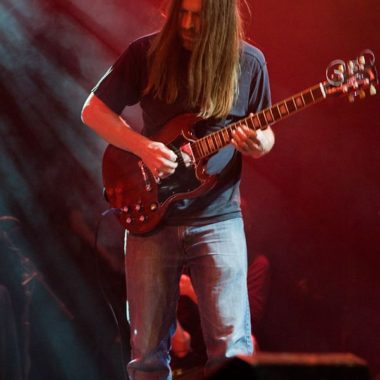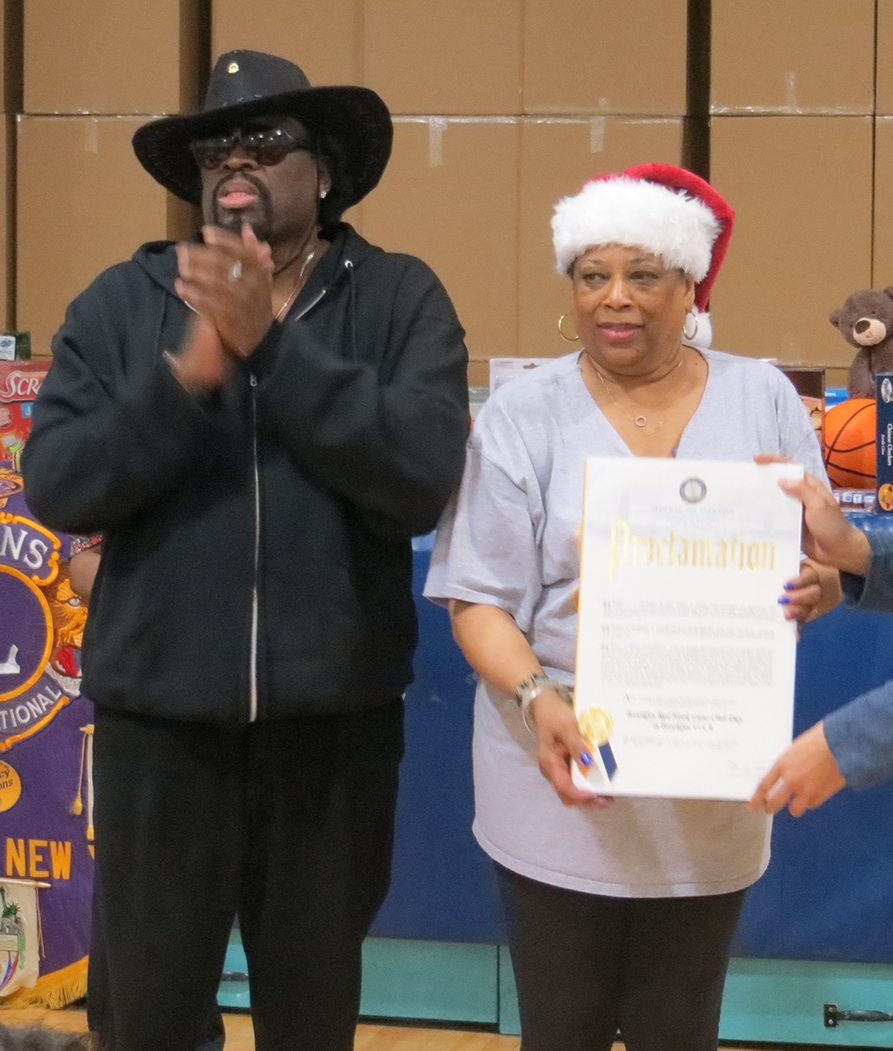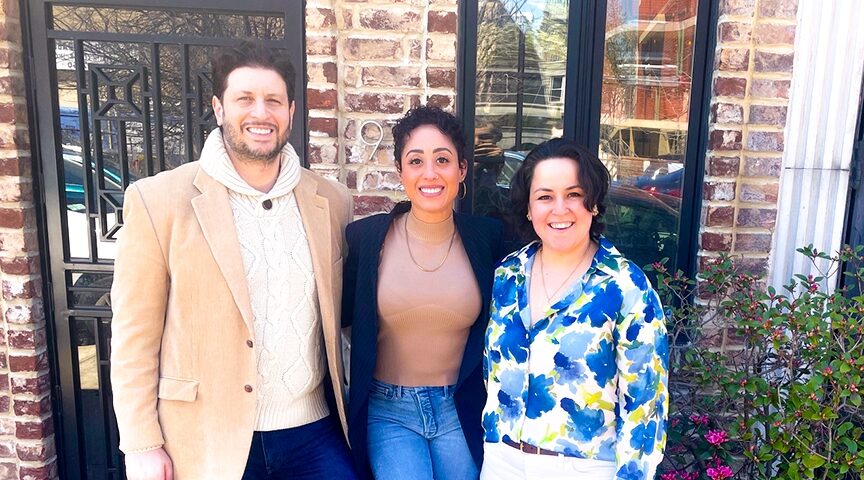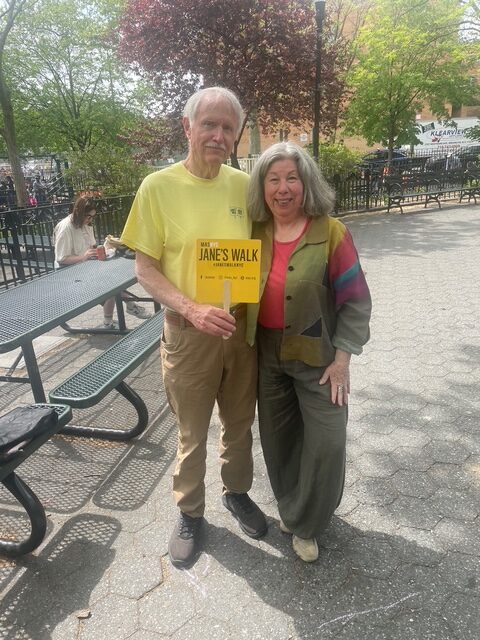The Long Play festival, which ran in various venues around downtown Brooklyn from April 29 to May 1, was created to replace the previous Bang on a Can marathon, an annual single-stage daylong free presentation usually in Manhattan. Over three days at 10 venues, more than 60 acts represented a mix of contemporary composition, jazz-based improvisation and updatings of folk and rock traditions. It’s no longer a free festival, but it improves on the old model by allowing time for full concerts as well as staging, lighting and, crucially, sound checks.
Contemporary, in this formulation, stretches back to the middle of the last century. While the music Bang on a Can presents—and the music founders Michael Gordon, David Lang and Julia Wolfe compose—certainly carries a currency, the first of what should become an annual festival put stakes firmly in the ground by revisiting Ornette Coleman’s 1959 album The Shape of Jazz to Come, Terry Riley’s 1964 open form composition In C and Karlheinz Stockhausen’s landmark 1968 a cappella piece Stimmung.
Stimmung, in fact, opened the festival in a performance by the vital New York vocal ensemble Ekmeles. The singers, seated in a circle on the floor of a studio in the Mark Morris Dance Center, engaged in a long and less than welcoming—yet fully absorbing—ritual. Riley’s In C, an immensely flexible piece for any number of musicians playing a series of repeating phrases at their own pace on instruments of their choosing, sold out two nights at the Brooklyn Academy of Music Opera House. The Bang on a Can All-Stars shared the stage with the German dance company Sasha Waltz & Guests. As a visual component, the dozen or so dancers busily moving about the stage in repeated motions—complimenting but not corresponding to the music—was stunning, and it’s the kind of piece that the resident All-Stars ensemble was born to play: loud, challenging, interpretive and precise.
In C ran the first two nights of the festival. On the third, the Opera House was host to an unforgettable reworking of the album The Shape of Jazz to Come. Tracks from the album were arranged, individually, by composer/performers Nick Dunston, Craig Harris, Nicole Mitchell, Carman Moore, David Sanford, and Pamela Z and played by an orchestra fronted by a jazz band including four musicians who played with Coleman: drummer Denardo Coleman (Ornette’s son and frequent bandmate, who helped to organize the evening), trumpeter Wallace Roney, Jr., bassist Jamaaladeen Tacuma and guitarist James “Blood” Ulmer. They were joined by two exceptional younger players— pianist Jason Moran and saxophonist Lee Odom—who well know their way around Coleman’s music. It was a fittingly ambitious tribute that by all means should be made available on record.
The Coleman and Riley concerts were the big-ticket items, but the festival was hardly just about propping up the old guard. Indeed, as a presenting organization, Bang on a Can has long been committed to presenting younger and lesser known composers and performers representing a diversity in gender, genre and geography and doing so on the strength of the work. They have, for decades now, set an example that orchestras and organizations would be wise to follow.
And while Gordon, Lang and Wolfe, were at the center of the festival, they put their own work on the periphery, in matinee and late-night slots. Three of Wolfe’s string quartets were presented in an 11pm set at Roulette, played with ferocity by longtime Bang on a Can allies Ethel. Four Marys (1991) and Early That Summer (1993) served as a reminder of what a strong voice Wolfe had well before being recognized with MacArthur and Pulitzer prizes. The more recent Blue Dress, a 2015 arrangement of a 2010 piece for singing violinist with electronics, was great to hear in all its glory on the heels of a stunning performance of the earlier With a Blue Dress On, which was heard just two weeks earlier at Carnegie Hall in a stunning performance by Tessa Lark.
Gordon’s 2009 Timber, for amplified 2×4’s, was played Mantra Percussion in another late-night set, bringing a surprisingly meditative calm to amplified planks of wood. Lang presented his 2012 Death Speaks, a setting (or re-setting) of all the lines in Schubert songs delivered by Death. The morbid romantic wrote a lot of them, enough to fill a half an hour, and Lang’s repurposing of them was delivered beautifully in an afternoon performance by My Brightest Diamond singer Shara Nova.
Gordon, Lang and Wolfe were also represented in their joint orchestration (with Evan Ziporyn) of Brian Eno’s Music for Airports, played by the All-Stars and the Choir of Trinity Wall Street at Roulette to start off the long Saturday. (That concert was followed on the same stage by the choir giving a ravishing performance of Arvo Pärt’s Kanon Pokajanen.) As a trio of talented composers, a radiant resident ensemble and a presenting organization committed to building a contemporary canon, Bang on a Can is among the city’s best new music outfits. To hold claim to all three, they have proven a model for valued younger organizations, such as the International Contemporary Ensemble and the Wet Ink Ensemble, and are an important asset to the city’s cultural well-being. Long play the Can.
Author
Discover more from Red Hook Star-Revue
Subscribe to get the latest posts sent to your email.













